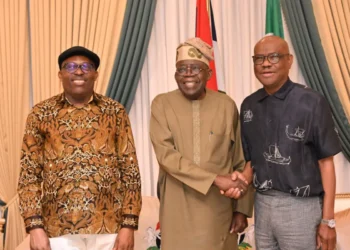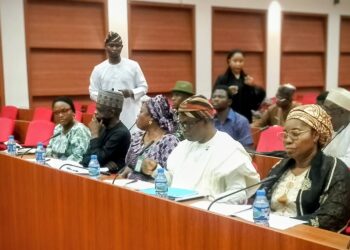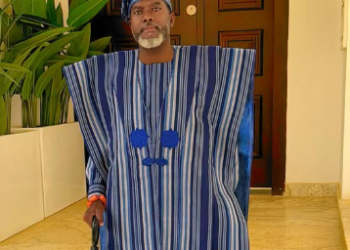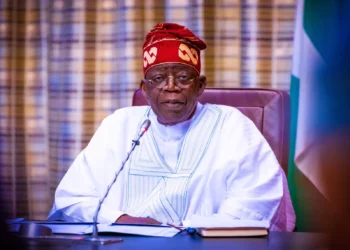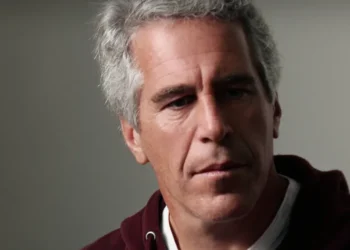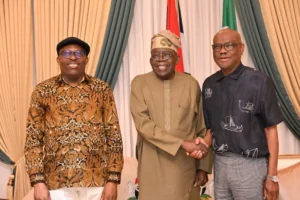New research from the McKinsey Global Institute provides a more nuanced, long-term view of Nigeria’s development progress from 2000 to 2019 that may help the country shape its future direction.
he World Bank’s Country Economic Memorandum, released late last year, rallied stakeholders around a central concern that Nigeria’s economy is at a crossroads, facing imminent collapse unless urgent action is taken.1
While Nigeria has made solid economic progress since 2000, averaging annual GDP growth of 8.6 percent from 1999 to 2010, the last decade has seen the country beset by a series of economic recessions.2 GDP has barely managed to keep pace with population growth, driving a steady decline in per capita income, and the country also continues to be rated below the sub-Saharan African average on all major indices of health and well-being—including the World Bank Human Capital index.3
But this is not the full picture, as new research on human development from the McKinsey Global Institute (MGI) reveals.
The MGI’s Pixels of Progress report combined official data with new research techniques, such as satellite-enabled luminosity studies, which measure activity based on the amount of artificial light emitted, to zoom into world regions at a granularity 230 times more detailed than country-level data sets allow. Two key metrics of development were considered: life expectancy and economic activity (measured as GDP per capita). At this subnational scale, a more nuanced and hopeful picture of development in Nigeria over the longer term emerges—one that shows, as of 2019, Nigeria had far fewer regions overall with very low GDP per capita and life expectancy than in 2000.
Nigeria has reduced its share of people living in microregions with very low living standards
Typically, human development is viewed at a country level. But country averages can obscure the substantial differences across and within countries, which are often far more pronounced than the differences between countries.
On average, the 178 countries covered by the MGI research cover an area of 700,000 square kilometers, supporting populations of some 40 million people and producing around $700 billion in GDP. By contrast, MGI researchers divided these countries into more than 40,000 microregions—averaging 180,000 people, 3,000 square kilometers, and $3 billion of GDP each—to gain deeper insight into population, life expectancy, and GDP per capita in each of these areas between 2000 and 2019.
In 2000, Nigeria had 279 microregions, representing 47 million people (roughly 40 percent of its population), classified as in the “orange zone”—meaning areas where GDP per capita and life expectancy were among the bottom 30 percent globally with income per person below $2,400 and a life expectancy of fewer than 65.6 years. But by 2019, the number of people living in this bracket had halved to 26 million, even as the total population of the country grew by about 80 million (exhibit).
Exhibit

We strive to provide individuals with disabilities equal access to our website. If you would like information about this content we will be happy to work with you. Please email us at: McKinsey_Website_Accessibility@mckinsey.com
Furthermore, most people who were still living in the bottom 30 percent had also improved their income and health but not sufficiently to overcome the threshold of that bracket, as their starting point was very low. Many of the 91 microregions that remained in the poorest category had either very low GDP per capita and life expectancy in 2000, or—as in the case of Abuja, Nigeria’s capital city—their populations grew faster than GDP, so their progress was not fast enough to move them up.
This is a hopeful message: If such microregions continue to make progress, they and their people may also achieve higher levels of prosperity.
Growth and development is not evenly spread across the country
Across Nigeria, the divergence between microregions was marked. While national GDP per capita grew at an average of 2.9 percent over the two decades, growth within microregions ranged from below 0 percent to above 5 percent. The Lagos and Oyo states, for example, had some of the fastest GDP and GDP per capita growth rates. If we look at 2019 values instead of growth rates, GDP per capita was highest around the business and commercial districts of Lagos, and in microregions along the coastline and surrounding area. Resource-rich areas of the southeast were also among the richest in the country, while the more agricultural north had lower GDP per capita levels.
The differences in life expectancy growth between microregions were similarly large. Growth in life expectancy appeared to be highest in some regions in the north-east, but also in some places along the southern coastline, for example, Bayelsa. Lower life expectancy growth was found in central and western parts of the country, for example, in the Kwara, Kogi, or Kaduna states. On average, places that started with lower levels of life expectancy added more years, narrowing the gap with regions with longer life spans.
Lagos and Ibadan take their place alongside other global cities in driving growth
The MGI data also show that globally, economic growth tended to be concentrated in specific areas, often cities.
About 3,600 microregions out of the 40,000 assessed, covering just 0.9 percent of the world’s land mass—roughly the size of South Africa – and home to about 27 percent of the global population, generated around half of the world’s additional GDP from 2000 to 2019. But critically, these powerhouse microregions were distributed across 130 countries, including Nigeria.
Such regions were mostly located in China, for example, Guangzhou and Dongguan in Guangdong and the Bao’an District in Shenzhen, with India and the United States home to the next largest concentration of high growth regions. But microregions in countries as diverse as Brazil, Indonesia, Romania, and Nigeria contributed, too, such as São Paulo in Brazil, Lagos and Ibadan in Nigeria, and Bucharest in Romania.
Surprising, confounding, and ultimately empowering
When trying to assess human progress, this level of detail matters. What we see when we get closer we get to the ground is often quite different from the picture painted at a national or subcontinental level. This can surprise or confound us, but most importantly, it could substantially impact how we make decisions to tackle the challenges ahead.
There can be little doubt that Nigeria’s overall economic potential is severely constrained by the many interlinked macroeconomic and structural issues it faces—and the COVID-19 pandemic has only made things worse.4 However, data sets of this scale and granularity can help us look beyond the mostly pessimistic outlooks for the country to better understand what’s driving growth, learn from those places that have experienced good growth, and ensure that scarce resources are deployed where they’re most needed. In short, a more granular understanding of the situation could bring greater clarity to policy makers and business leaders grappling with a deepening economic crisis, enabling us to move forward more purposefully.
Knowledge, in this instance, is indeed power.

